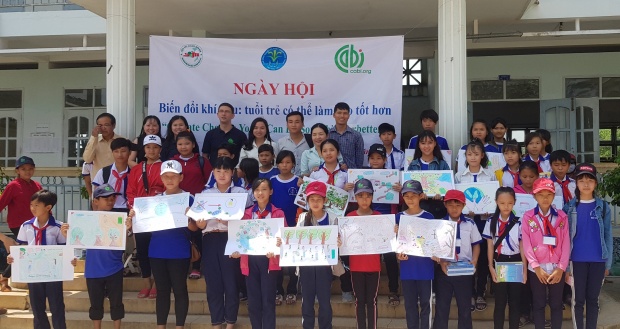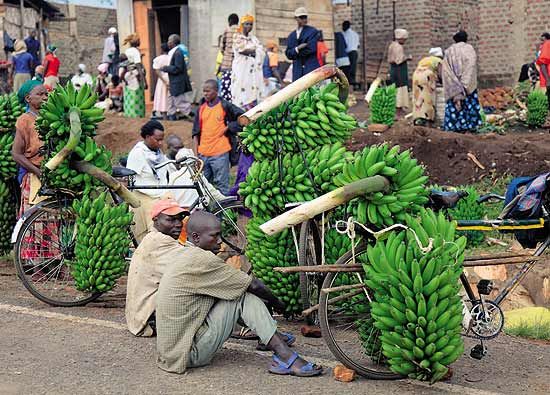Meeting the needs of women farmers in Pakistan
Globally, women represent 43% of the agricultural labour force but they have less access than men to credit, education, land ownership, high quality inputs, and rural advisory services. Agriculture can be a powerful pathway out of poverty but without fair access to these things, women aren’t always in a position to fully benefit.
Farmers in Malawi fund first purpose-built permanent plant clinic to fight pests and diseases
A group of farmers in Ntcheu district, Central Malawi, have clubbed together to fund the first purpose-built permanent plant clinic to help fight a range of crop-devastating pests and diseases that threaten their livelihoods and food security. Pengapenga Plant Clinic, which previously operated under a tree in the market place, is now providing a more…
Exploring the “art” in “climate-smart”
Originally published on CGIAR CCAFS Art has a place in climate discussions. Children, who are usually deemed too young to understand complex topics such as climate change must be involved as well. A campaign with the theme “Climate Change: Youth Can Do Something” was organized on 7 October 2018 in Tra Hat Climate-Smart Village (CSV)…
Plantwise successes revealed in Impact Story Competition
The successes of smallholder farmers in Nepal, Uganda and Kenya – thanks to help from CABI – have become the focus of the Plantwise Impact Story Competition won by three extension workers who helped them combat crop pests and diseases. Debraj Adhikari, a Senior Plant Protection Officer from Nepal, plant doctor Mubunga Joshua from Uganda…
Plantwise Most Read 2018
With 2018 drawing to a close we take a look at the most popular articles on the Plantwise blog this year, along with some firm favourites.
El Puesto para Plantas de Achuapa, Nicaragua ayuda a mantener la producción de ajonjolí
Por Solveig Danielsen, Luis Medina, Patricia Castillo y Eduardo Hidalgo El ajonjolí es un cultivo de mucha importancia socioeconómica para los pequeños productores de la franja del pacífico de Nicaragua. Desde principio de los años 90, la Cooperativa Juan Francisco Paz Silva produce y procesa ajonjolí para la exportación de aceite a Estados Unidos, Inglaterra…
The Achuapa plant clinic helps to maintain sesame yields in Nicaragua
By Solveig Danielsen, Luis Medina, Patricia Castillo and Eduardo Hidalgo Sesame is a crop of great socioeconomic importance for smallholder farmers of the pacific region of Nicaragua. Since the early 90s, the Juan Francisco Paz Silva Cooperative has produced sesame oil, mainly for export to the United States, England and Japan.
Including more women in Plantwise Pakistan
With a strong emphasis on making sure gender is embedded within the entire programme, Plantwise Pakistan has been actively pursuing the participation of more women in its activities and implementation. Realising the important role of females in agricultural development and the need to build their own capacity, the Agriculture Department of Punjab nominated 12 female…
Plantwise launches in Khyber Pakhtunkhwa province of Pakistan
A Memorandum of Understanding (MoU) has been signed between CABI and Pakistan’s Agriculture Department Khyber Pakhtunkhwa (KPK) to launch the Plantwise programme in the province.








